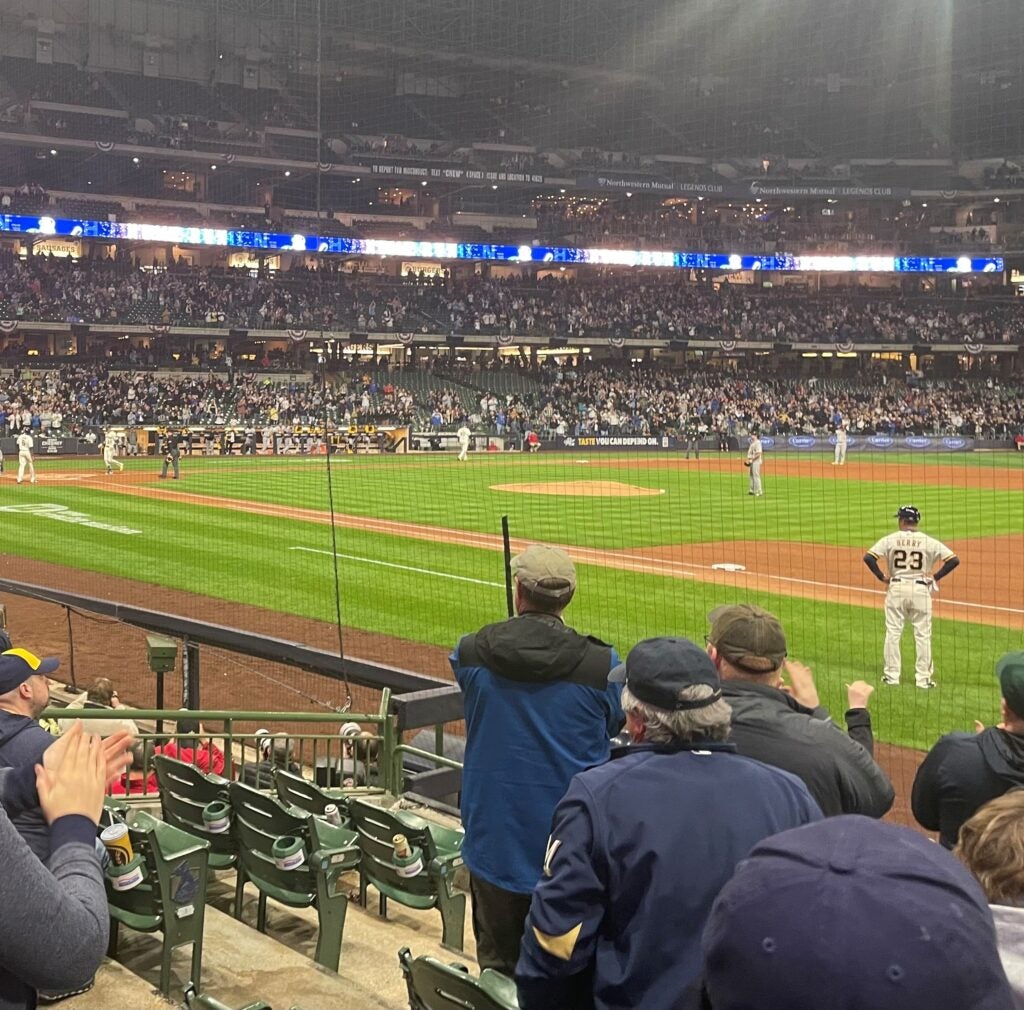By Eli Nachmany, J.D. ’22
Harvard Law School has the best sports law program in the country. During my time at HLS, I have had the opportunity to complete various legal internships at the highest heights of the sports industry. That is thanks in large part to the Harvard Sports Law Clinic, in which I participated twice. Through the clinic, I interned with the Indianapolis Colts (during my 2L spring semester) and the Milwaukee Brewers (3L spring semester).
Professor Peter Carfagna runs the sports law program at HLS. He teaches three classes on sports law: a class on contract drafting, a class on the legal history of America’s three major leagues (MLB, NFL, and NBA), and a class on representing the professional athlete. After taking the first two of those classes in the fall of my 2L year, I was eligible to participate in the Sports Law Clinic.
The Harvard Law School Sports Law Clinic affords students the opportunity to intern in the legal departments of various sports organizations. Students have interned everywhere from Major League Baseball to the Brooklyn Nets to the Concussion Legacy Foundation. The breadth of internship placements available to students speaks to the tremendous amount of work that Professor Carfagna and our Office of Clinical and Pro Bono Programs have put into making the clinic stellar.
Although we were online during our 2L year due to the COVID-19 pandemic, I managed to secure a remote internship with the Indianapolis Colts for my 2L spring. I scheduled no classes on Fridays and spent every Friday working on various assignments for the Colts. My supervisor sent me all sorts of contracts to review, from sponsorship deals to agreements with stadium vendors. On numerous occasions, I found myself directly applying the things I learned in Professor Carfagna’s contract drafting class.
As a 3L, I signed up to do the Sports Law Clinic again. This time, I landed a remote internship for the spring semester with the Milwaukee Brewers. Starting my internship amid the Major League Baseball lockout allowed me to work on some longer-range research projects that gave me a good sense of how professional sports franchises think about bigger-picture issues. Like with the Colts, I also reviewed a ton of contracts. This experience entailed parsing the text of each contractual provision to ensure that agreements were “execution ready and litigation proof,” as Professor Carfagna liked to say in class.
My supervisor Kellen Kasper ’10, the Brewers’ Associate General Counsel, also interned for the Brewers through the Sports Law Clinic when he was at HLS. Harvard Law’s tremendous sports law alumni network has given so much back to the Harvard sports law program through clinical placements. That network is another reason that there is no place like Harvard Law for sports law.


In the last week of my Brewers internship, I was able to fly out to Milwaukee and visit the team’s offices for a couple of days. This experience ended up being one of the most amazing things I got to do in law school. I flew in on a Sunday night, and when I got to work on Monday morning, my supervisor had me set up at one of the desks in the team’s front office. He even took me to a game at American Family Field on Monday night, and we got to watch the Brewers win 6-1 over the Pittsburgh Pirates on the back of a Christian Yelich grand slam. We did lunch at the ballpark on Monday and in downtown Milwaukee on Tuesday—I got the full Brewers experience.
Apart from the clinic, I spent my 1L summer as a legal intern with the University of Arkansas Athletics Department, through the university’s Office of General Counsel. (HLS has now established a clinical placement with Arkansas, too.) The Arkansas, Colts, and Brewers internships were all “in-house” internships, meaning I got to intern under a lawyer actually working within the organization, as opposed to working under “outside” counsel (like at a law firm). What I found is that there is a lot of overlap when it comes to the sort of work that sports organizations do in-house. Issue spotting is key, and when working across various departments within the building, an in-house lawyer can often add value by looking out for potential legal problems before they manifest. Contract drafting skills are critically important, too.
When I got into HLS, I knew I wanted to do sports law. But I could not have imagined just how much of it I would get to do while still in law school. The Sports Law Clinic opened many doors for me, and represents the best of what HLS has to offer.
Filed in: Clinical Student Voices
Tags: Class of 2022, Sports Law Clinic
Contact Office of Clinical and Pro Bono Programs
Website:
hls.harvard.edu/clinics
Email:
clinical@law.harvard.edu
